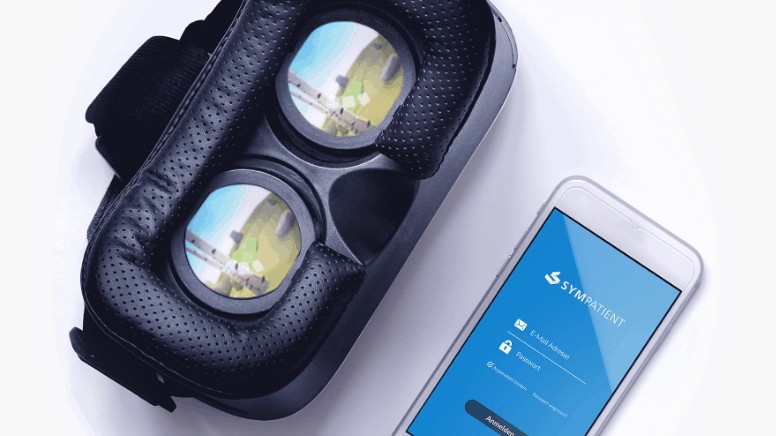In this interview, Roman Iselin talks about his experience in MedTech, the changing regulatory environment, and the challenges startups and companies face.

Country Lead Medical Devices Switzerland, Johnson & Johnson
Roman Iselin has close to 20 years of experience in MedTech and is currently Country Lead Medical Devices Switzerland at Johnson & Johnson. He is one of over 70 experts that work together with Verve Ventures’ Portfolio Success team to provide hands-on guidance to our portfolio startups.
You’ve studied economics at the University of St. Gallen, how did you enter the MedTech world?
There were several industries that I identified as attractive because of their development prospects, MedTech was one of them, and when I saw a job ad in a student newspaper, I went for it. My first job was already exciting, interdisciplinary project management together with an engineer. Our goal was to improve an existing pelvic fixation system. It was a very good entry-level position as we went through the whole process from ideation, prototyping, testing, patenting, clinical studies and then market entry. The times were different back then, regulation has become much more stringent since then.
Your career became quite international soon, what were the different markets you worked in?
For Synthes, I moved to Miami to develop the Latin American markets, which included working in more established markets like Colombia, but also doing ground work in countries like Guatemala. This position was very broad, it included working with distributors and subsidiaries, sales and marketing planning, and building customer relationships. After that, I moved to Philadelphia to the headquarters into a global strategy role, and then to Germany. At that time, Johnson & Johnson acquired Synthes, and I was busy with integration work, before coming back to Switzerland to my current role which initially had a strong focus on transformation.
What does that mean?
J&J is a market leader in many domains, and there are highly specialized people on the clinical side. Our goal was to strengthen it and bring together the rest of the organization, building key accounts and add critical capabilities such as business intelligence or value-based healthcare. Digitalization is another responsibility of mine, I’ve been leading Digital Healthcare in Europe for a few months.
Before we talk more about digitalization, you’ve mentioned that regulation has changed. Let me ask a very basic question: Why does medical technology need to be regulated at all?
The goal of regulation is mainly to ensure patient safety. There have been instances in the past, for example the scandal of breast implants, that had have significant patient consequences. Now, the pendulum has swung to the other side, and a wave of regulation has hit the sector. On May 26th, 2021, the new EU medical device regulation MDR came into force. The hurdles to get new products approved have risen substantially.
” The hurdles to get new products approved have risen substantially.”
What does that mean for companies that want to bring medical devices to the market?
Basically, it takes longer, more resources and costs more money. Whereas for example before, manufacturers could refer to an equivalent product in their applications, now they need to gather clinical data themselves. Requirements regarding documentation and tracking have been tightened. For products that received a CE mark before May 26th, there is a transition period of three years. Now, if you look at MDR from a global perspective, it is clear that the European market for innovation has become less attractive. The CE mark system was quite liberal, but MDR is much less. The United States, which are the biggest and hence most attractive market for MedTech, have become even more attractive now because the FDA regulation is less stringent. It is still for example possible to refer to an equivalent technology under FDA rules whereby MDR still offers the option to use equivalence but has significantly increased the requirements. Europe still is strong in MedTech, there is a lot of expertise and a very strong research base. And it is, of course, too early to say what the effects of MDR will be in the long run. But there is one problem that gives all of us a headache, the bottlenecks at the notified bodies.
Notified bodies are the institutions that handle the applications from MedTech manufacturers, inspect and examine the devices and decide if they conform to regulations or not. Most European countries have one or several notified bodies, which are private organisations. Why is there a bottleneck?
Because under the CE mark regime, there were around 75 of them. The notified bodies themselves had to be re-certified by the EU to get approved under MDR, and currently, there are only around 20 that have passed this step. This has led to more workload and a backlog of applications, which is a problem for the whole industry. In the end, you have a business plan that is based on an estimate when your product will be approved for commercialization. But if for example you’re a tiny startup nobody knows and have to wait several months longer because the notified bodies are under water, this can cause a lot of pain.

Invest in Startups
As one of Europe’s most active venture capital investors, we grant qualified private investors access to top-tier European startups. With investments starting at EUR/CHF 10’000, you can build your own tailored portfolio over time and diversify across stages and sectors.
You said it’s still too early to tell, but do you have an opinion how the increased hurdles of MDR might affect the MedTech industry in general?
There are two possible outcomes that might happen concurrently. Because of the increased costs associated with market approval, you need a much more resilient business case. First, this might drive consolidation of the industry, because bigger players can absorb these costs more easily. Second, it might lead to less innovation in therapeutic areas where the market is smaller. We’ll probably see an increase in M&A activity in the future. But at the same time, the healthcare sector will experience a wave of digitalization that has accelerated with Covid. There will be plenty of opportunities for startups.
“We’ll probably see an increase M&A activity in the future. “
What does a company need to consider when it wants to bring a MedTech device to the market?
From the start, everything needs to be well-documented, starting from the proof of concept, technical components and evidence plan to the risk analysis. There needs to be a strong emphasis on this, as otherwise, missing documentation will come to haunt you later. The question which target markets you chose, and hence which regulatory strategy, depends on the business plan, i.e. what product and performance claims the company might support with data. The clinical data that is needed for approval might differ if you target the US or EU first. And it should be explored early which medical centers will gather this data. They might have limited resources as well. It should be decided if you want and can do regulatory affairs inhouse or want to work with a consultant/contactor/service provider.
Is it better to target the US or EU market first?
There are a lot of moving parts right now that affect this decision. The UK, an important market, has left the EU, and we’ll see what new regulatory regime they will adopt. In Switzerland, there is a political motion to adopt FDA approval. If both the UK and Switzerland would opt for the FDA, this could clearly change the market entry strategy. Points to consider aren’t just the size of the market, but also the speed of the regulatory process, the availability of investor’s money in these markets and last but not least the opportunity for creation of an early revenue stream. Some MedTech companies even opt for Australia and New Zealand as first markets, because the hurdles are lower there. One thing is clear, Europe is a less homogenous market now than before.
We haven’t talked about reimbursement of the technology yet, but that is not part of the approval process.
No, here every country has its own health authority that decides on reimbursement. But all of them require evidence data supporting the product and performance claims.
What about digital therapies, where are the pitfalls in the approval process there?
They often get to the market faster as implantable devices that have a long R&D process. I’d say with digital therapies, the critical question is more about the go-to-market strategy, and if they are just a nice-to-have or clearly improve the clinical outcome. If you’re going to sell digital solutions to hospitals, there are a lot of different stakeholders and resources for IT are scarce. So there is the question about the business model, if you need to generate revenue with the technology or if it is an enabling technology, for example a software that helps visualize things during operations. There will be a lot more data in the future that will allow us to act upon it. Take a simple thing such as a registry for knee and hip implants, that over time, will allow to compare the outcomes between hospitals or even doctors. I think we just have started to use data in healthcare, and there are, of course, many challenges such as cybersecurity and data privacy, but I’m confident there will be a lot of interesting innovation.
Written by
WITH US, YOU CANCO-INVEST IN DEEP TECH STARTUPS

Verve's investor network
With annual investments of EUR 60-70 mio, we belong to the top 10% most active startup investors in Europe. We therefore get you into competitive financing rounds alongside other world-class venture capital funds.
We empower you to build your individual portfolio.
More News
04.04.2020
“With this image quality, we can develop all kinds of diagnostics”
Aarhus University Hospital is the first hospital in the world to utilize a clinical system that enables the practical use of 150-water as a tracer substance for PET scans. In this interview, nuclear medicine expert Lars Christian Gormsen talks about the rapid adoption of PET scanners and the benefits of MedTrace’s system.
03.02.2020
A world premiere in digital health
On the 29th of January 2020, the biggest German health insurance announced the launch of a novel anxiety therapy: Invirto. This premiere is a major milestone for the digital therapeutics startup Sympatient which is developing Invirto. Sympatient’s co-founder and managing director Christian Angern explains how this all came about.
18.11.2019
A small hook for a really big market
Karsten Lindhardt, PhD developed the first injection-molded pill that was approved by the FDA with his former company. With his new startup Biograil, he is exploring a new delivery mechanism for biological drugs. It’s not just something nobody ever did, it’s also becoming a focus area of the pharmaceutical industry to transform injectables to oral drugs, so the timing of such development could not be better.
Startups,Innovation andVenture Capital
Sign up to receive our weekly newsletter and learn about investing in technologies that are changing the world.




